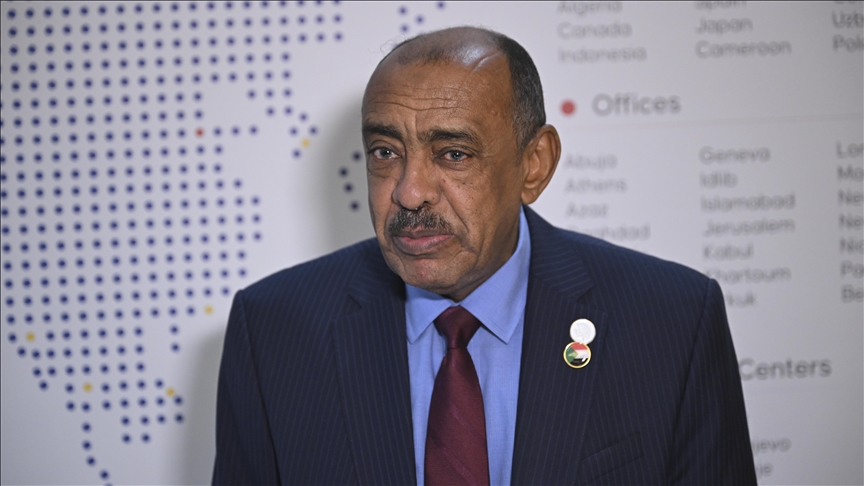Sudanese humanitarian crisis overshadowed by Gaza conflict: Top diplomat
Sudan's Deputy Foreign Minister Ali Al-Sadiq Ali speaks to Anadolu at Antalya Diplomacy Forum
 Deputy Foreign Minister Ali Al-Sadiq Ali speaks during an exclusive interview within the Antalya Diplomacy Forum (ADF) at NEST Congress and Exhibition Center in Antalya, Turkiye on March 02, 2024. ( Harun Ozalp - Anadolu Agency )
Deputy Foreign Minister Ali Al-Sadiq Ali speaks during an exclusive interview within the Antalya Diplomacy Forum (ADF) at NEST Congress and Exhibition Center in Antalya, Turkiye on March 02, 2024. ( Harun Ozalp - Anadolu Agency )
ANTALYA, Türkiye
A high-ranking Sudanese diplomat said the conflict in the Gaza Strip has put the humanitarian crisis in his country into second place, lamenting that Sudan is trying to cope with the little means it possesses.
The conflict between the Sudanese army and the paramilitary Rapid Support Forces since last April has led to thousands of killings, displacement and shortage of food and other essentials. Several cease-fire agreements brokered by Saudi Arabia and US mediators have failed to end the violence.
Speaking to Anadolu at the Antalya Diplomatic Forum, Deputy Foreign Minister Ali Al-Sadiq Ali addressed several critical issues affecting the North African country, shedding light on the ongoing civil conflict, humanitarian crisis and diplomatic relations.
"It is true that this need has been eclipsed by the war in Gaza in the right word, and also in Ukraine," he said.
He stressed the displacement of millions of people due to the conflict.
"Many individuals have been forced to flee their homes, leaving behind their belongings and requiring urgent humanitarian assistance. Despite efforts to provide aid with limited resources, the international community's response has been insufficient," the minister said.
"Seven million people left Khartoum, to the surrounding states, they left everything behind because the houses were looted, their properties were stolen, and they need humanitarian assistance."
Regarding the civil conflict, Ali emphasized the presence of multiple armed militias, and the refusal of some groups to integrate into the national army. The refusal has contributed to the perpetuation of the conflict, leading to widespread atrocities and destruction of infrastructure, including attacks on diplomatic missions and UN offices, he said.
On diplomatic relations, the foreign minister touched on Sudan's decision to resume relations with Iran, arguing that it was made in the best interest of both countries and does not pose a threat to regional security.
He condemned Israel's actions against the Palestinians, calling for global action to address ongoing atrocities and ending the occupation.
The interview also addressed the status of peace negotiations between rivals factions in Sudan, with Ali expressing disappointment over the lack of progress.








